Why Should You Read the Southern Presbyterians?
Take advantage of this one week special listed below!
Books on Sale
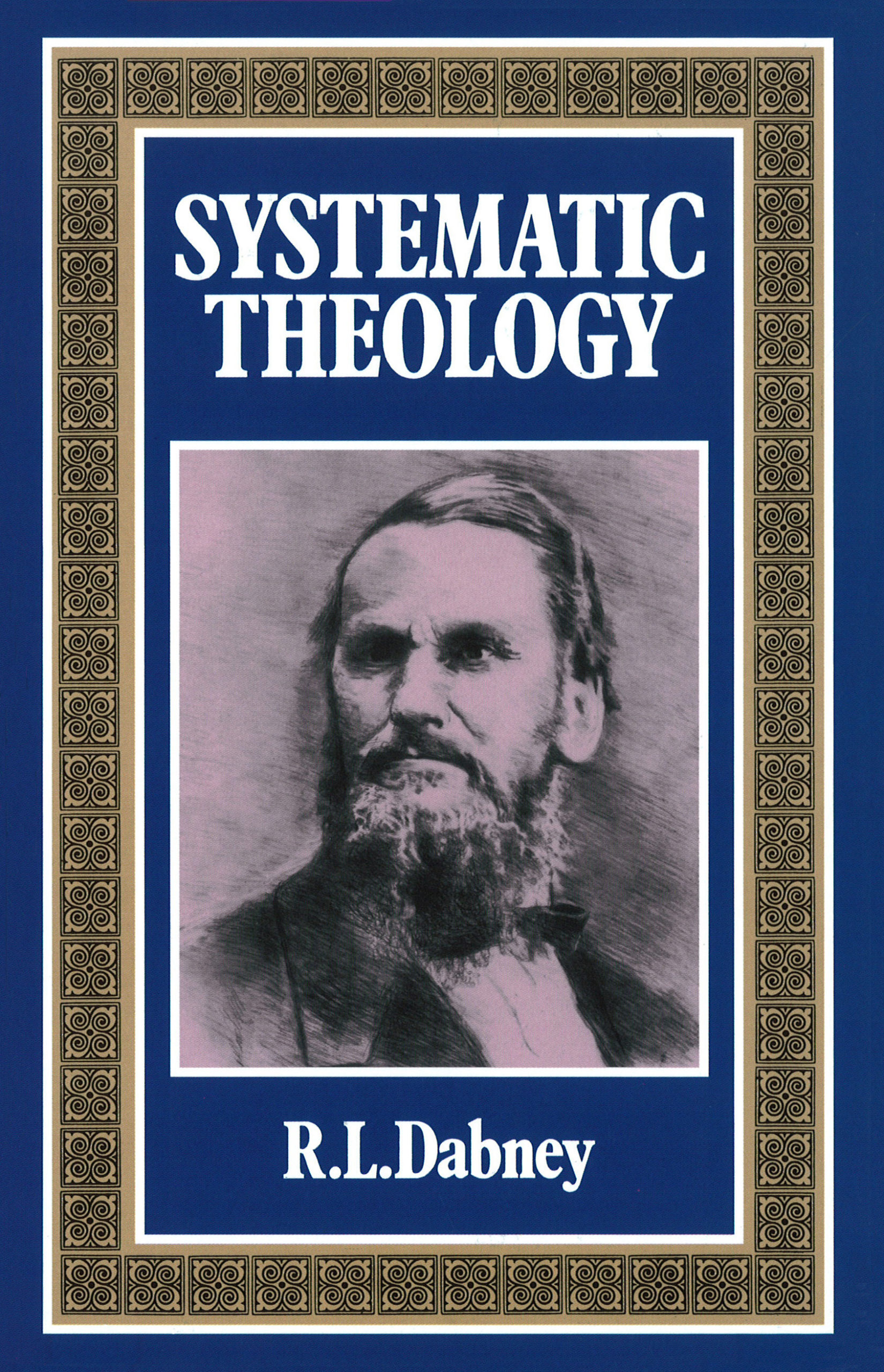
Description
Take advantage of this one week special listed below! Books on Sale ‘Hodge gives an excellent, general statement of the Reformed Faith, yet Dabney adds something beyond the general treatment of most subjects. When his method of teaching is recalled, of sending his students to the standard texts on theology (including Hodge), and then adding his […]
‘Hodge gives an excellent, general statement of the Reformed Faith, yet Dabney adds something beyond the general treatment of most subjects. When his method of teaching is recalled, of sending his students to the standard texts on theology (including Hodge), and then adding his own observations on each doctrine in the class from which his “Theology” was derived, it is to be expected that his work would have a certain freshness to it, and this is just what is found. He begot in his men something akin to his own vigor and strength, his love of truth and of God.’ — MORTON H. SMITH
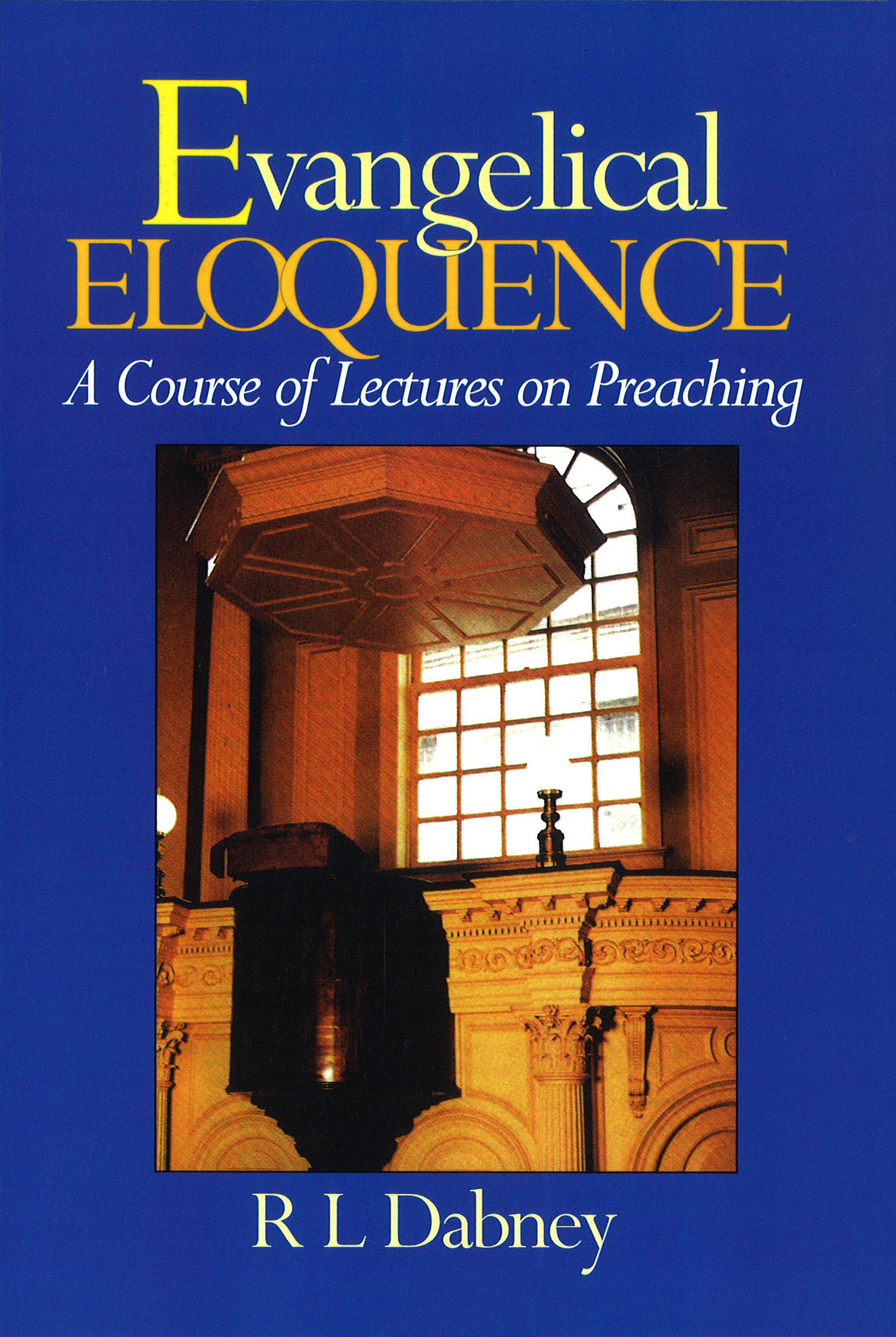
Evangelical Eloquence
A Course of Lectures on Preaching
Description
Take advantage of this one week special listed below! Books on Sale ‘Hodge gives an excellent, general statement of the Reformed Faith, yet Dabney adds something beyond the general treatment of most subjects. When his method of teaching is recalled, of sending his students to the standard texts on theology (including Hodge), and then adding his […]
In these days of the soundbite and the autocue, public speaking is a declining art-form, though it is not extinct and still has its own weight and force.
In New Testament times, unlike today, rhetoric was a highly regarded skill and works were written about it which are still read. Dabney quotes liberally from these, but does not always agree with them. He knew that gospel preaching was not to be ‘with wisdom of words, lest the cross of Christ should be made of no effect’.
‘Evangelical eloquence’, for Dabney, was unique. It consisted in ‘the soul’s virtuous energy exerted through speech’ which applied ‘the authority of God to the conscience’ and formed ‘the image of Christ upon the souls of men’.
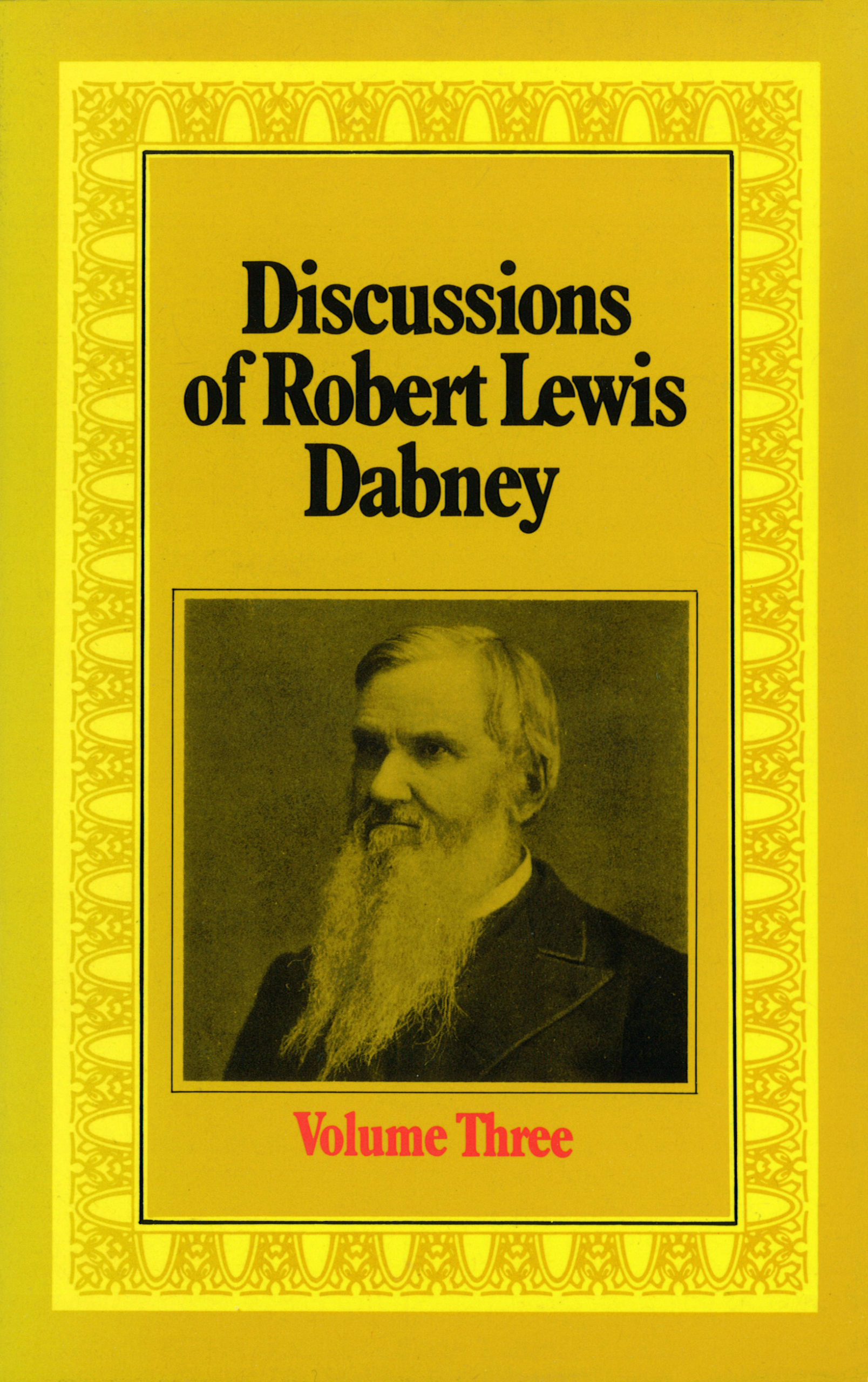
Discussions of R L Dabney
Volume 3
Description
Take advantage of this one week special listed below! Books on Sale ‘Hodge gives an excellent, general statement of the Reformed Faith, yet Dabney adds something beyond the general treatment of most subjects. When his method of teaching is recalled, of sending his students to the standard texts on theology (including Hodge), and then adding his […]
Robert Dabney (1820-98), who was for forty years Professor in Union Seminary, Virginia, U.S.A., was in the opinion of Dr. Archibald Alexander, ‘the best teacher of theology in the United States, if not in the world’.
The third volume includes Dabney’s treatment of issues in society which are of perennial concern to the Church of Christ, including Anti-Christian Science, Secularized Education, Strikes and the influence of Roman Catholicism. A number of biographical sketches of great Christians whom Dabney knew also appear, including one of General T. J. (‘Stonewall’) Jackson, to whom Dabney had been Adjutant-General during the Civil War.

Selected Writings of Benjamin Morgan Palmer
Articles written for The Southwestern Presbyterian in the years 1869-70
Description
Take advantage of this one week special listed below! Books on Sale ‘Hodge gives an excellent, general statement of the Reformed Faith, yet Dabney adds something beyond the general treatment of most subjects. When his method of teaching is recalled, of sending his students to the standard texts on theology (including Hodge), and then adding his […]
Palmer reminds his readers that what we do for Christ always relies and results from who we are in Christ. For instance, the tenderness of Palmer’s care for the soul who crossed his path is just as inspiring as the wisdom with which he ministered grace to their spirits. In Palmer we see wisdom combined with a loving fervor for Christ’s people. Yet above such considerations as these, the reason why i have found myself increasingly drawn to Palmer in recent years is the way in which his high view of Holy Scripture both shaped and empowered his remarkable ministry. Benjamin Morgan Palmer’s life and writings demonstrate that strong convictions regarding the inspiration, authority, and sufficiency of Holy Scripture will equip gospel servants with all things necessary to answer the requirements of their times.
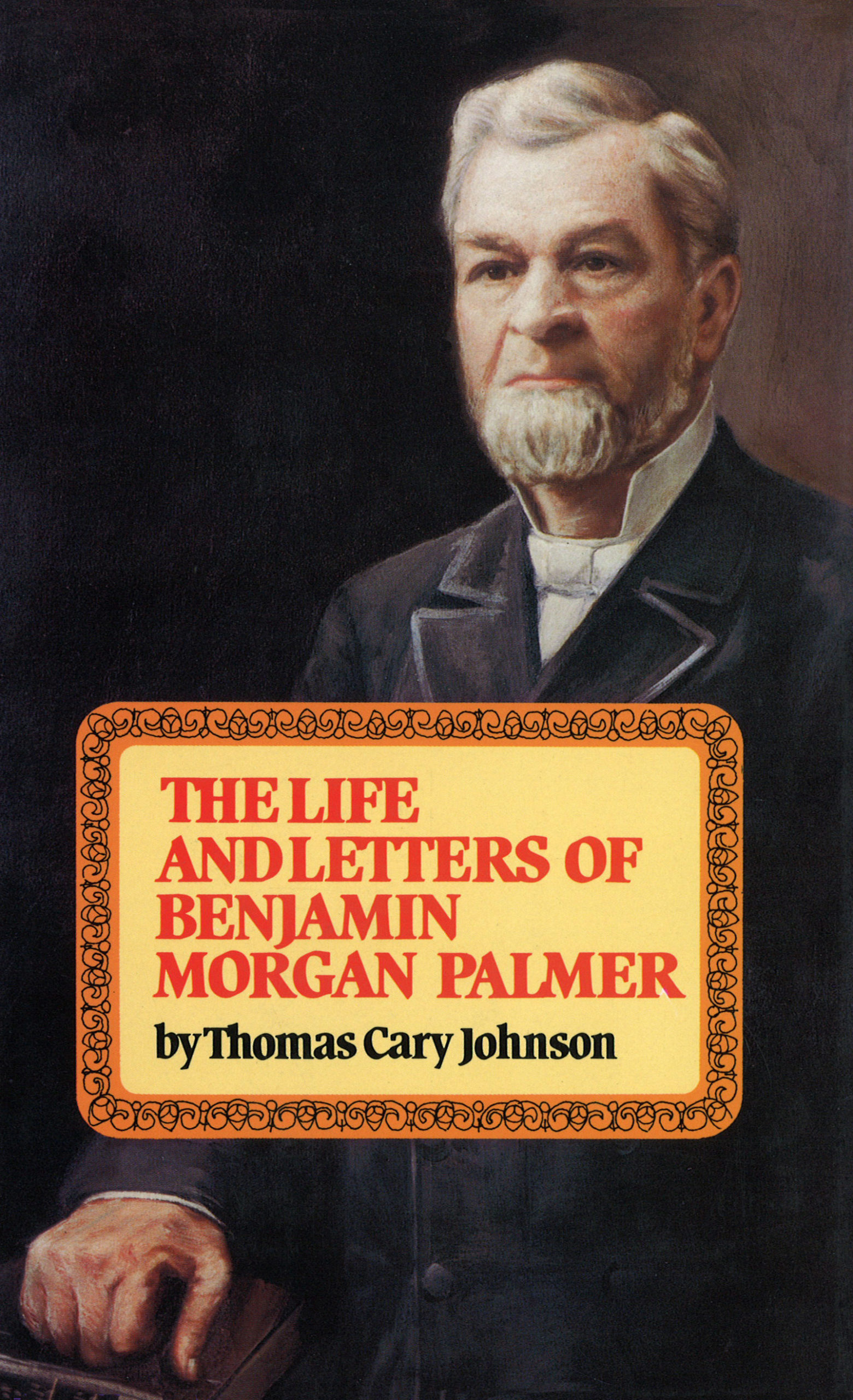
Description
Take advantage of this one week special listed below! Books on Sale ‘Hodge gives an excellent, general statement of the Reformed Faith, yet Dabney adds something beyond the general treatment of most subjects. When his method of teaching is recalled, of sending his students to the standard texts on theology (including Hodge), and then adding his […]
Benjamin Morgan Palmer (1818-1902) ‘one of the few greatest preachers of the first nineteen centuries of the Christian era’, was just 25 when he became the successor of J. H. Thornwell in Columbia, South Carolina, and 38 at the commencement of his 46-year pastorate of the First Presbyterian Church in the great business centre of New Orleans.
This biography takes us behind the public figure to the humble, prayerful Christian whose life was marked by affliction. His only son was lost in childhood and four daughters were to die, one after another, followed by his wife. As Palmer saw it, ‘The earthly lights are put out that no earthly love may come in between Him and us.’
This is not only a great biography; it is an outstandingly relevant record in an age when the church needs a recovery of spiritual strength and vision. It would be hard to read it sympathetically without being led to pray.
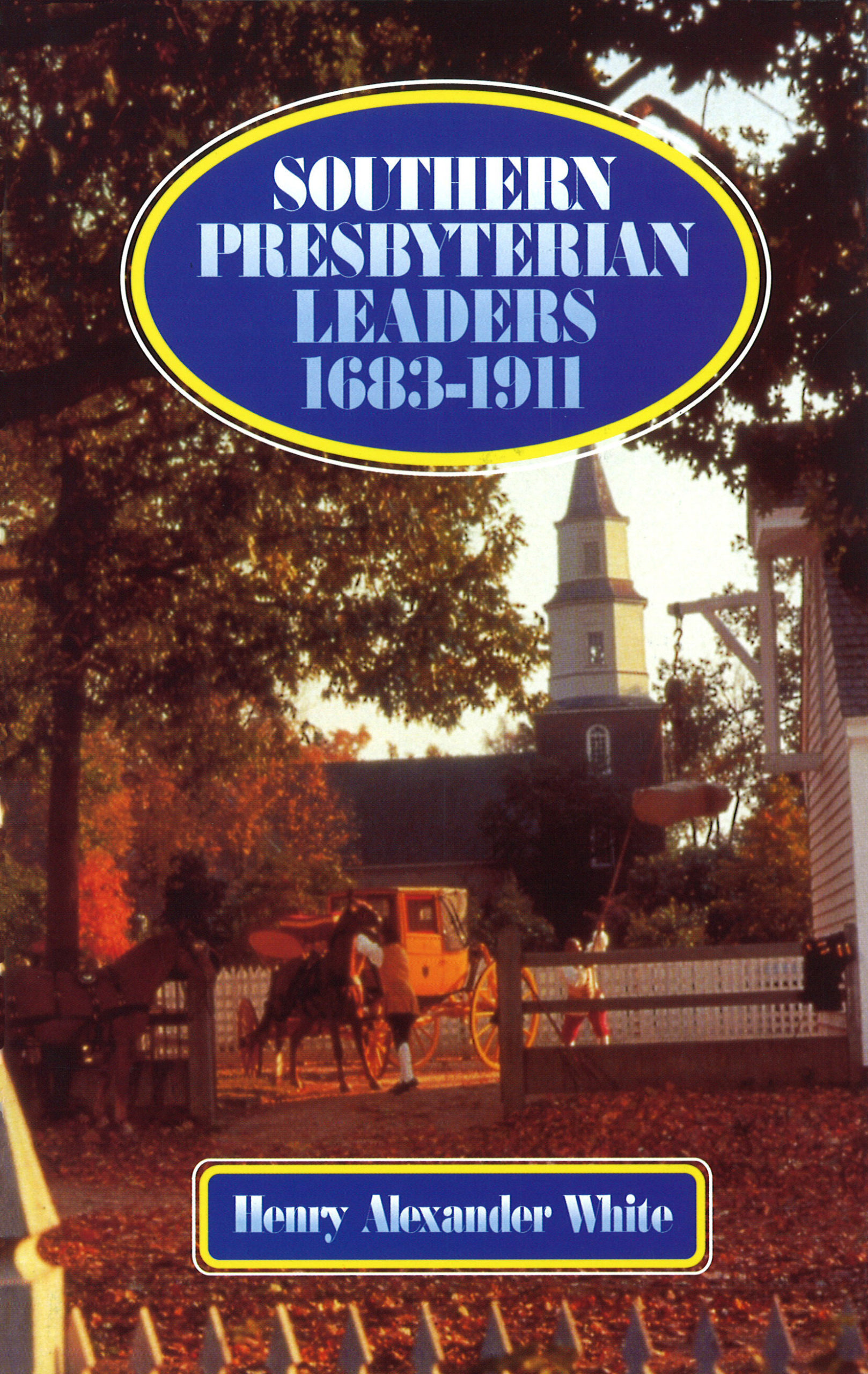
Southern Presbyterian Leaders
1683 - 1911
Description
Take advantage of this one week special listed below! Books on Sale ‘Hodge gives an excellent, general statement of the Reformed Faith, yet Dabney adds something beyond the general treatment of most subjects. When his method of teaching is recalled, of sending his students to the standard texts on theology (including Hodge), and then adding his […]
‘I am profoundly thankful that the Banner of Truth has republished this volume, which has become extremely rare and is now unknown to many. I cannot imagine a more accessible or useful introductory work for those wishing to become more familiar with the rich theological heritage of Southern Presbyterianism. The subject matter speaks to a much wider audience than the descendants (literal and spiritual) of the men described. Indeed the reissue of White’s work ought to be welcomed by all friends of robust, warm, evangelical, Reformed Christianity, for the stalwarts about whom he writes offer much timeless biblical wisdom to contemporary Christians ministering in the context of a crumbling western civilization.’ — LIGON DUNCAN
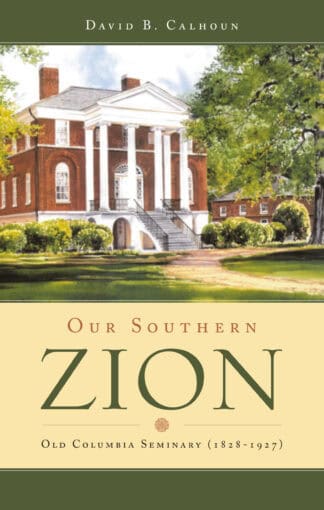
Our Southern Zion
Old Columbia Seminary (1828-1927)
Description
Take advantage of this one week special listed below! Books on Sale ‘Hodge gives an excellent, general statement of the Reformed Faith, yet Dabney adds something beyond the general treatment of most subjects. When his method of teaching is recalled, of sending his students to the standard texts on theology (including Hodge), and then adding his […]
A few blocks from the First Presbyterian Church of Columbia, South Carolina, is a fine antebellum mansion, the Robert Mills Historic House, named for the man who designed it. The house, beautifully restored, with Regency furnishings, marble mantelpieces, and sterling silver doorknobs and locksets, reflects the wealth and culture of Ainsley Halt, the man who briefly owned it. More fitting, however, would be desks and tables and books of the professors and students of Columbia Theological Seminary, which made the house its home for almost a hundred years. The rooms of the main floor were the classrooms, where George Howe trained generations of Southern ministers in biblical exegesis, where James Henley Thornwell taught Calvin’s Institutes, where John Adger explained the sacraments and church polity, and where John Girardeau set forth the great themes of Reformed theology. It was in one of these rooms that two students organized the Society of Inquiry on Missions in February of 1831.
On the top floor was the library-many of its books lovingly collected in Europe by Thomas Smyth, pastor of Charleston’s Second Presbyterian Church. Woodrow Wilson said that in the little chapel, originally the mansion’s stables, he had heard some of the greatest examples of eloquent and powerful preaching. In that chapel the Southern Presbyterian Book of Church Order was hammered out. A later Columbian beautifully wrote that ‘the Book of Church Order for a church which glories to acclaim [Christ] alone as King who was cradled in a manger, was composed in a house built for a carriage stable’ (William Childs Robinson, Columbia Theological Seminary, p. 94).

The Writings of Thomas Peck
3 Volume Set: Selected and Arranged by T.C. Johnson
Description
Take advantage of this one week special listed below! Books on Sale ‘Hodge gives an excellent, general statement of the Reformed Faith, yet Dabney adds something beyond the general treatment of most subjects. When his method of teaching is recalled, of sending his students to the standard texts on theology (including Hodge), and then adding his […]
As a teacher, Peck was in the front rank. ‘As an expositor of truth, as an exegete of Scripture,’ his successor C.R. Vaughan believed, ‘he was probably without a rival in his day.’ But it was not mere teachers that he laboured to prepare for the gospel ministry but rather men ‘with a tongue set on fire’. In this his own life was a constant example, possessed as he was with a moral conviction and a resolute fidelity to Scripture which ‘sometimes puzzled the lovers of expediency’. Yet this was ever combined with a generous enthusiasm and warm affections. Devotion to principle is the only biblical remedy for our age of religious uncertainty and compromise. In these volumes, Peck’s life work will be continued in another generation.
Latest Articles
On the Trail of the Covenanters 12 February 2026
The first two episodes of The Covenanter Story are now available. In an article that first appeared in the February edition of the Banner magazine, Joshua Kellard relates why the witness of the Scottish Covenanters is worthy of the earnest attention of evangelical Christians today. In late November of last year, on the hills above […]
A Martyr’s Last Letter to His Wife 11 February 2026
In the first video of The Covenanter Story, which releases tomorrow, we tell the story of James Guthrie, the first great martyr of the Covenant. On June 1, the day he was executed for high treason, he coursed the following farewell letter to his wife: “My heart,— Being within a few hours to lay down […]
